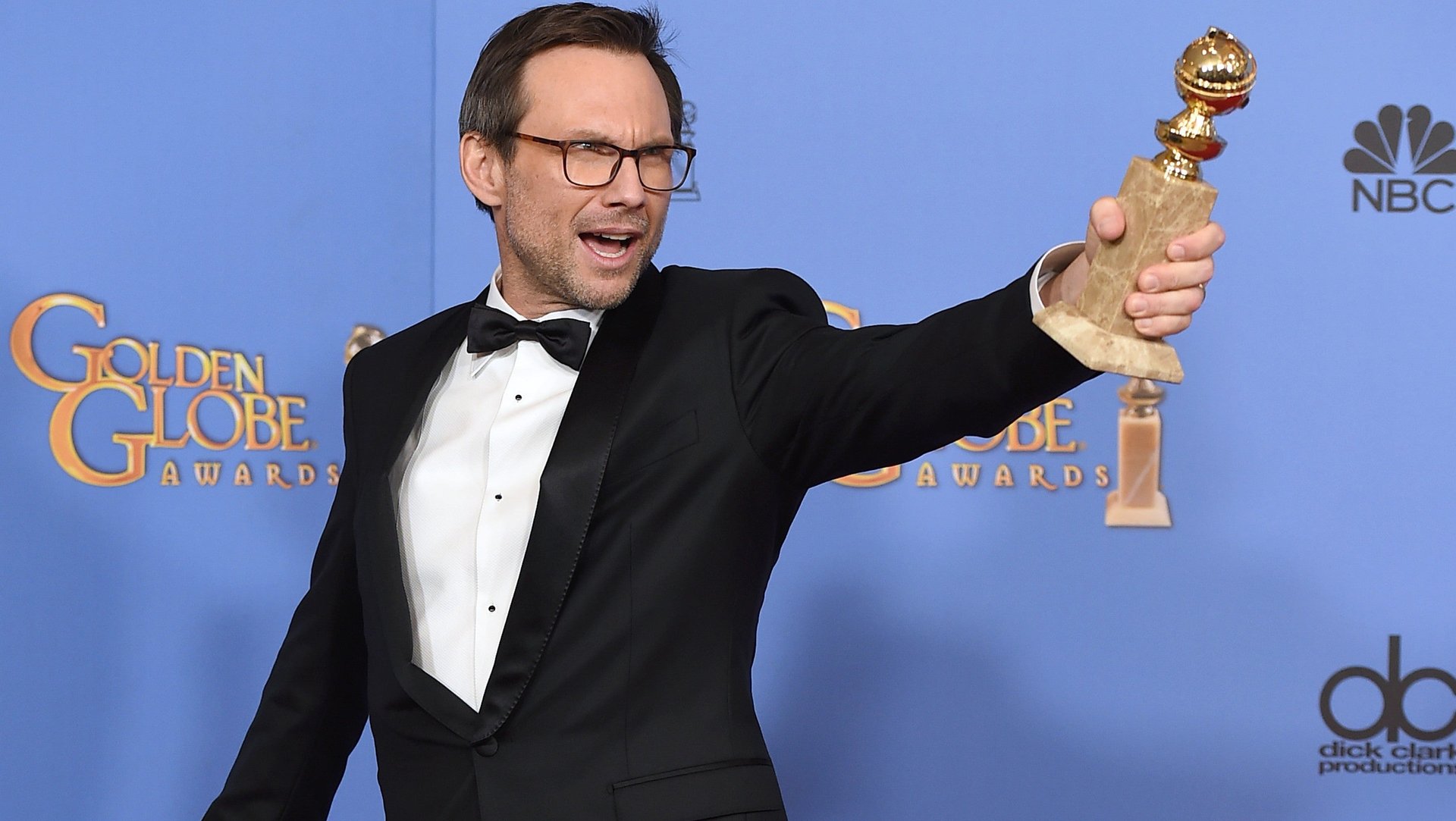The Golden Globes were weird and scattershot—pretty much just like today’s TV landscape
The 2016 Golden Globe Awards were awful and boring last night (Jan. 10). Beer-wielding, nonchalant host Ricky Gervais perhaps explained it best when he said—in all seriousness—that the ceremony was totally meaningless. ”That award is—no offense—worthless,” he said. “It’s a bit of metal that some nice, old, confused journalists wanted to give you in person so they could meet you and have a selfie with you.”


The 2016 Golden Globe Awards were awful and boring last night (Jan. 10). Beer-wielding, nonchalant host Ricky Gervais perhaps explained it best when he said—in all seriousness—that the ceremony was totally meaningless. ”That award is—no offense—worthless,” he said. “It’s a bit of metal that some nice, old, confused journalists wanted to give you in person so they could meet you and have a selfie with you.”
Those confused journalists comprise the Hollywood Foreign Press Association (HFPA), a group of about 90 entertainment reporters and photographers from around the world who dole out the Golden Globes and have, on several occasions, been accused of taking bribes.
For television, at least, HFPA seems to give awards out at random, often awarding shows simply because they’re new or “different.” Todd VanDerWerff summarizes the phenomenon well for Vox:
If the movie awards kept looking back, the TV awards felt as if they were embracing change simply for the sake of embracing change. Sometimes, this led to good winners, as when Mr. Robot, USA’s exciting new hacker drama, took the prize for Best Drama Series. Other times, it led to baffling winners, as when Amazon’s Mozart in the Jungle, a pretty okay dramedy about an orchestra, took home two prizes for no particular reason. At still other times, it led to Lady Gaga winning an acting award, because these are still the Golden Globes.
This intentionality in the awards given out, however, may unintentionally reflect exactly what TV is like in the year 2016.
Nine different networks won awards last night, none of them winning more than two. USA, a middling American cable channel, won twice for its strange but thrilling auteur drama Mr. Robot. The only other “network” to win twice was Amazon, which isn’t really a network at all, but rather a massive global e-commerce business that also now happens to produce its own original shows.
Netflix, surprisingly, didn’t win a single award, despite being nominated more than any other network—including the illustrious HBO (which took home just one award, for Show Me a Hero, the miniseries from The Wire scribe David Simon, starring Oscar Isaac). The network sitcom—once a staple of award shows—was nowhere to be seen.
In an age when there is literally too much good TV to watch, it’s fitting that the Globes’ biggest winner in TV was Amazon’s Mozart in the Jungle, a show that no one seems to watch. It beat out another Amazon show, Transparent, which is far more critically acclaimed and was arguably the expected winner in the best comedy category. (It also beat out two HBO shows and an original Hulu series.)
The CW, a network best known for teen-centric shows like The Vampire Diaries and lighthearted superhero series like The Flash, won for the musical dramedy Crazy Ex-Girlfriend. In her acceptance speech, actress and co-creator Rachel Bloom mentioned how the show had been rejected by several networks before ultimately landing at the CW.
This is television today. It’s a fractured, disparate, eccentric medium. To be clear, Mozart in the Jungle was not the best comedy of the year. Several of the year’s best shows—The Leftovers, The Americans, Unbreakable Kimmy Schmidt, the list goes on—were not even nominated. The HFPA didn’t necessarily award the best shows, but as Gervais said, it’s all meaningless anyway, so who cares? In the end, the Globes wound up being a fairly accurate portrayal of what we all call “television.”
See the full list of nominees and winners, including those for film as well, here.